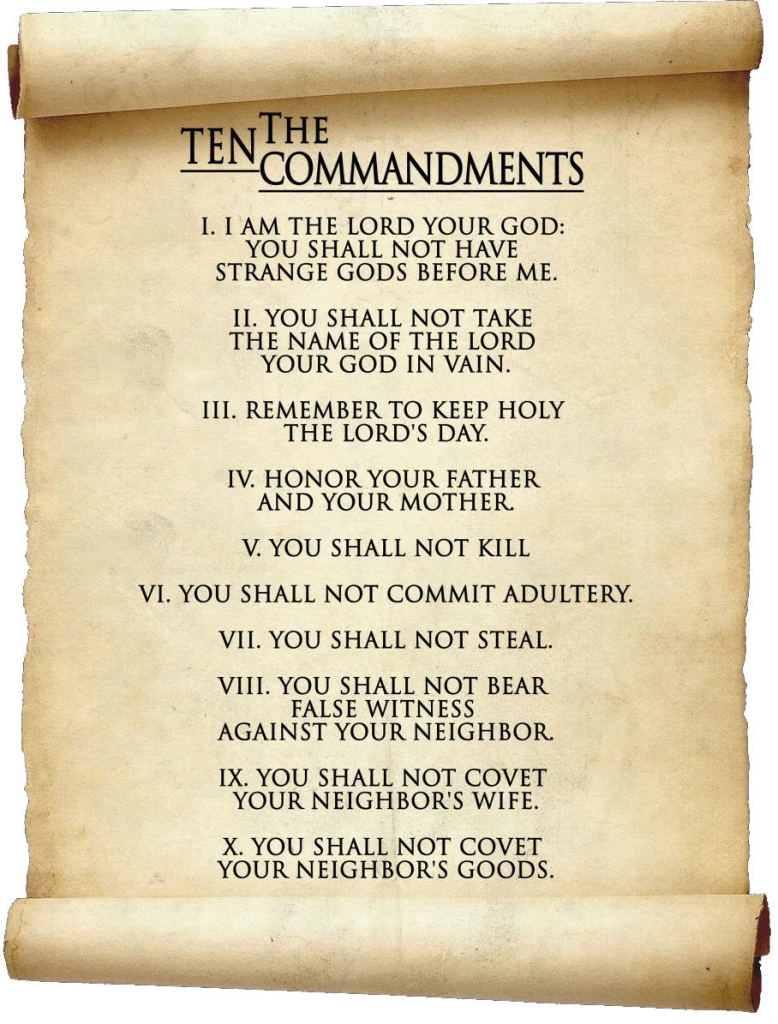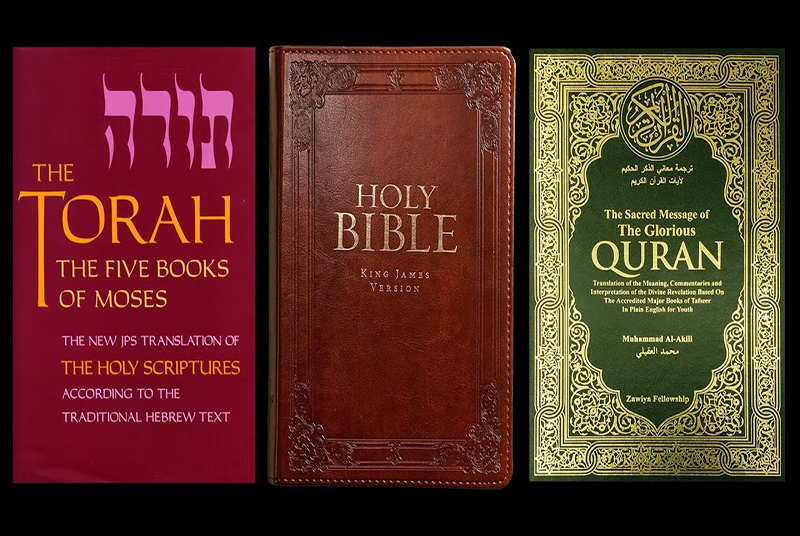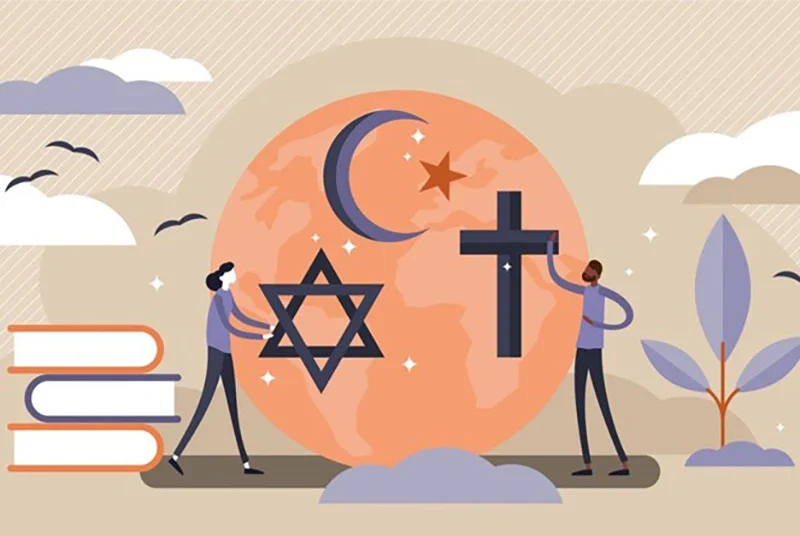The Influence of Sacred Texts on Modern Society
Sacred texts—ranging from the Torah, Bible, Quran—serve not only as repositories of divine wisdom but also as catalysts for social change and continuity. In the contemporary world, their influence persists, manifesting in laws, traditions, education, and even political systems. This article explores how sacred texts continue to impact various facets of modern society.
Historical Context
Sacred texts have historically acted as the bedrock of civilizations, playing a pivotal role in shaping the moral and legal foundations of societies.
These ancient scriptures provided the first structured approaches to governance and ethics, establishing systems of law and order that influenced the development of civilizations over millennia.
The legal codes of ancient societies often drew heavily from religious doctrines contained in these texts. For example, the Ten Commandments of the Bible, which include fundamental ethical directives such as prohibitions against murder, theft, and adultery, have significantly influenced Western legal traditions. These commandments provided clear moral guidelines that were incorporated into the legal frameworks of Western countries, establishing principles of justice, accountability, and social order that continue to underpin modern legal systems.
Similarly, the Quran, the holy book of Islam, has profoundly shaped the Sharia law practiced in many Islamic countries. Sharia, which means “the clear, well-trodden path to water,” encompasses a comprehensive legal and moral system derived from the Quran and the Sunnah (Sunnah means the sayings, actions, and approvals of the Prophet Muhammad).
Sharia law governs various aspects of life, including family law, criminal justice, and commercial transactions, reflecting the deep integration of religious teachings into the legal and societal structures of Islamic nations.
Hammurabi’s Code as one of the earliest recorded legal systems of written laws, providing a foundational framework for governance that ensured the stability and development of early civilizations.
The principles and values enshrined in these texts transcended their religious origins to become integral to broader cultural and societal norms. As societies evolved, the teachings of sacred texts continued to influence various aspects of life, from law and governance to education and cultural identity.
Over time, the ethical and moral teachings of these sacred texts have become deeply embedded in the cultural fabric of societies, transcending religious boundaries and influencing broader societal norms and values.
The principles of justice, compassion, and human dignity emphasized in these texts have been incorporated into secular legal systems and international human rights frameworks, demonstrating their enduring relevance and impact.

Ethical and Moral Guidance
One of the primary roles of sacred texts is to provide ethical and moral guidance that helps individuals and societies distinguish between right and wrong.
These texts are rich with teachings and principles that form the foundation for ethical behavior and moral decision-making. The values and norms outlined in sacred scriptures guide adherents on how to live virtuous and righteous lives, fostering a sense of responsibility and integrity.
For instance, the principle of compassion and charity is a recurring theme in all sacred texts (The Torah, the Bible, and the Quran).
The Bible frequently emphasizes the importance of loving one’s neighbor and providing for the poor and needy. In the Gospel of Matthew, Jesus teaches, “Love your neighbor as yourself” (Matthew 22:39), highlighting the importance of compassion and empathy. Similarly, the Quran underscores the significance of charity (Zakat) and kindness towards others: ” Indeed, Allah commands justice, grace, as well as generosity to close relatives.
He forbids indecency, wickedness, and aggression. He instructs you so perhaps you will be mindful” (Quran 16:90).
These teachings inspire countless acts of kindness and generosity, leading to the establishment of charitable organizations, humanitarian efforts, and community support systems.
Modern movements advocating for social justice frequently draw on sacred teachings to galvanize support and validate their causes.
The pursuit of justice and equality is deeply embedded in many religious texts. The Bible, for example, contains numerous references to justice, such as the verse from the book of Amos: “But let justice roll on like a river, righteousness like a never-failing stream!” (Amos 5:24). This call for justice has inspired movements for civil rights and social reform, where leaders like Martin Luther King Jr. invoked biblical themes to promote equality and end discrimination.

Sacred texts also provide guidance on environmental conservation and the stewardship of the Earth. Many religious teachings emphasize the responsibility of humans to care for the natural world. In the Quran, it is stated, ” And the earth He laid [out] for the creatures.”
(Quran 55:10), suggesting a duty to protect and preserve the environment. This sense of stewardship has led to the development of faith-based environmental initiatives that promote sustainable practices and conservation efforts.

The principles of equality and human rights are also deeply rooted in sacred texts. For instance, the Bhagavad Gita teaches the intrinsic value of every individual and the importance of treating others with respect and dignity.
The principle of Ahimsa (non-violence) in Hinduism advocates for the respect of all living beings. These teachings have been instrumental in shaping modern human rights discourses and movements, promoting the idea that all individuals, regardless of their background, deserve equal rights and opportunities.
Influence on Law and Governance
In many countries, sacred texts have significantly influenced legal and governance systems, shaping the moral, ethical, and legal foundations of societies.
These ancient scriptures provide guidelines and principles that have become integral to the legal and political frameworks of various cultures, reflecting their enduring impact.
Judeo-Christian Values in Western Democracies
In Western democracies, Judeo-Christian values, derived from the Bible, are deeply embedded in the legal framework, promoting ideals such as justice, equality, and individual rights.
The influence of the Ten Commandments, which set forth ethical imperatives like prohibitions against murder, theft, and bearing false witness, is evident in the foundational principles of Western legal systems. These values have informed the development of laws and policies that uphold human dignity and promote social justice.
For example, the concept of human rights, which is central to Western democracies, can be traced back to the biblical principle that all humans are created in the image of God and therefore possess inherent worth and dignity.
Sharia Law in Islamic Countries
Similarly, in countries with predominant Islamic populations, the Quran’s directives often intertwine with the legal systems, guiding both public and private life.
Sharia law, derived from the Quran and Sunnah, provides a comprehensive legal and ethical framework that governs various aspects of life, including family law, criminal justice, and commercial transactions. Sharia emphasizes principles such as justice, equality, and community welfare, ensuring that the legal system aligns with Islamic teachings.
For instance, the concept of justice in Sharia is not just about legal justice but also encompasses social and economic justice, aiming to create a fair and balanced society.
Religious Influence in Secular States
Even secular states are not entirely devoid of religious influence, as many laws trace their origins to sacred teachings. While secularism aims to separate religious institutions from state affairs, the moral and ethical values derived from sacred texts often underpin the legal principles of these states.
For example, the ethical teachings of compassion and charity found in the Bible and Quran have influenced social welfare policies and programs designed to support the less fortunate.
Additionally, concepts such as the sanctity of life and moral responsibility, which are rooted in religious doctrines, continue to shape contemporary legal debates on issues like abortion, euthanasia, and bioethics, since divine religions are sent based on God’s knowledge of human beings and in accordance with their needs and interests, they are naturally compatible with humans, regardless of whether they are in a religious or secular society.
Legal Evolution and Adaptation
Over time, the influence of sacred texts on law and governance has evolved, adapting to the changing needs and contexts of societies.
While the core principles remain, legal systems have incorporated new interpretations and adaptations to address contemporary challenges. For instance, many modern legal systems have embraced the principles of democracy, human rights, and gender equality, integrating these values with traditional religious teachings to create a more inclusive and just legal framework.
Educational Impact
Sacred texts also play a crucial role in education, both historically and in contemporary times. Religious institutions have long been at the forefront of preserving and disseminating knowledge, serving as primary centers of learning where sacred texts were studied, taught, and revered.
These institutions, such as monasteries, madrasas, temples, and synagogues, were instrumental in the transmission of not only religious knowledge but also secular subjects like philosophy, science, and literature.
Historically, the preservation and study of sacred texts provided the foundation for many educational systems. Monasteries in medieval Europe, for instance, were hubs of scholarly activity where monks meticulously copied and studied biblical manuscripts.
These monastic schools laid the groundwork for the development of universities. Similarly, madrasas in the Islamic world, which focused on the Quran and Hadith, also taught subjects such as mathematics, astronomy, medicine, and law, reflecting the comprehensive nature of education in these institutions. These centers of learning contributed to the intellectual and cultural flourishing of their respective civilizations.
In contemporary education, the influence of sacred texts remains significant. Many schools and universities incorporate the study of sacred texts into their curricula, recognizing their historical, cultural, and philosophical importance.
Courses on religious studies often explore the Torah, Bhagavad Gita, Tripitaka, Bible, Quran, examining their teachings, historical contexts, and their impact on societies.
Comparative religion courses are particularly valuable in today’s diverse and interconnected world. By studying sacred texts from various religious traditions, students can gain a deeper understanding of different faiths and the common values they share.
This approach fosters interfaith understanding and dialogue, which are essential for promoting tolerance and inclusivity in a multicultural society.
Through these courses, students learn to appreciate the richness and diversity of religious thought, developing a more nuanced perspective on global cultures and beliefs.
Virtues such as honesty, modesty, responsibility, and kindness are fundamental aspects of human nature. These virtues are deeply rooted in what it means to be human and reflect the essence of our moral compass. Divine religions are designed with the purpose of nurturing and elevating these inherent qualities, guiding individuals towards a more righteous and fulfilling life.
Consequently, even in secular societies, where religious beliefs might not be the central focus, the principles and teachings of divine religions still hold significant value. These societies can benefit immensely from the moral and ethical guidelines provided by religious teachings, as they promote a sense of community, compassion, and moral responsibility.
It’s no surprise, then, that the timeless wisdom found in religious teachings continues to resonate and positively impact people, regardless of their societal or cultural background.
Furthermore, religious institutions continue to play a significant role in education by establishing schools, colleges, and universities that integrate religious teachings with secular education. گThese institutions often provide a holistic education that nurtures both the mind and the spirit, emphasizing the development of moral character alongside academic excellence.
Cultural Identity and Arts
Sacred texts significantly shape cultural identity and artistic expression, serving as profound sources of inspiration that transcend time and geography.
The narratives, themes, and symbols contained within these texts have profoundly influenced literature, music, visual arts, and even architecture, playing a crucial role in the cultural development and artistic heritage of societies around the world.
The impact of sacred texts on literature is immense. Many of the world’s great literary works draw heavily from religious scriptures, using their themes, stories, and symbols to convey deeper meanings and ethical lessons. For example, John Milton’s epic poem “Paradise Lost” is inspired by the biblical story of the fall of man, exploring themes of sin, redemption, and divine justice.
Similarly, Dante Alighieri’s “Divine Comedy” is a literary masterpiece that intertwines elements of Christian theology with poetic imagination to depict the soul’s journey through Hell, Purgatory, and Paradise.
In the Islamic world, Persian poetry has been profoundly influenced by the Quran.
The works of poets such as Rumi, Hafez, and Saadi are imbued with Quranic themes and spiritual insights, reflecting the poets’ deep engagement with Islamic teachings.
These poems explore complex themes such as love, mysticism, and the search for divine truth, offering readers profound reflections on the human condition.
Sacred texts have also inspired a rich tradition of religious music and hymns.
In Christianity, hymns and chorales often use biblical verses and themes to create powerful expressions of faith and devotion. The Gregorian chants, which are monophonic, unaccompanied sacred songs of the Roman Catholic Church, are an example of how scripture has influenced the development of Western musical traditions.
In Hinduism, the Bhagavad Gita and Vedas have inspired numerous devotional songs and bhajans that are sung in temples and during religious ceremonies.
These songs are not only a means of worship but also a way to transmit the teachings of sacred texts to the community.
Visual arts and architecture have also been deeply influenced by sacred texts. Michelangelo’s frescoes in the Sistine Chapel, inspired by biblical stories, are among the most iconic works of Western art.
The ceiling frescoes depict scenes from the Book of Genesis, including the Creation of Adam, which has become an enduring image of artistic achievement and spiritual reflection.
In the Islamic world, Quranic verses are often incorporated into architectural designs, adorning the walls of mosques and other religious buildings.
The intricate calligraphy of these verses is a testament to the beauty and reverence with which the Quran is regarded. The Isfahan’s mosques or the Blue Mosque of Tabriz are examples of how sacred texts have inspired the magnificent artistry and architecture of Islamic culture.
The influence of sacred texts continues to inspire contemporary artists and creators. Modern writers, musicians, and visual artists often draw upon religious themes and narratives to explore contemporary issues and express their personal beliefs.
For example, the works of contemporary artist Anselm Kiefer frequently reference biblical and Kabbalistic texts, exploring themes of memory, history, and spirituality.
Similarly, contemporary literature often revisits and reinterprets sacred narratives to address modern concerns.
Novels like “The Poisonwood Bible” by Barbara Kingsolver and “The Red Tent” by Anita Diamant reimagine biblical stories from new perspectives, offering fresh insights into the human experience.
Sacred texts play a crucial role in fostering a sense of identity and belonging among communities. The shared stories, values, and symbols found in these texts help to create a collective cultural heritage that binds people together.
Celebrations, rituals, and traditions based on sacred narratives strengthen community bonds and provide individuals with a sense of purpose and connection.
For instance, the celebration of religious holidays such as Christmas, Easter, Ramadan, and Diwali are rooted in sacred texts and traditions, bringing people together to commemorate shared beliefs and values.
These occasions foster a sense of unity and continuity, linking present generations with their ancestors and reinforcing cultural identity.
Interfaith Dialogue and Global Unity
In our increasingly interconnected global society, sacred texts play a pivotal role in fostering interfaith dialogue and understanding.
These ancient scriptures, revered by diverse religious traditions, provide a common ground where people of different faiths can come together to explore shared values and ethical principles. By emphasizing the universal themes of compassion, justice, and human dignity, sacred texts serve as a bridge that connects individuals and communities across religious divides, promoting harmony and global unity.
Sacred texts from various religious traditions often contain similar ethical teachings and values, which can serve as a foundation for interfaith dialogue.
For instance, the principle of compassion is emphasized in many sacred texts. The Bible teaches, “Love your neighbor as yourself” (Matthew 22:39), while the Quran states, “And do good; indeed, Allah loves the doers of good” (Quran 2:195). Similarly, the Bhagavad Gita encourages selfless service and the pursuit of righteousness. By focusing on these shared values, individuals from different faiths can find common ground and build mutual respect and understanding.
Platforms for interfaith studies play a crucial role in facilitating respectful engagement with diverse perspectives. Universities, religious organizations, and community centers often host interfaith dialogues, conferences, and workshops that bring together scholars, religious leaders, and laypeople from various faith traditions.
These platforms provide opportunities for participants to study sacred texts, discuss their interpretations, and explore their relevance to contemporary issues.
For example, programs like the Parliament of the World’s Religions and the United Nations’ Interfaith Harmony Week promote interfaith dialogue on a global scale.
These initiatives encourage participants to share their religious traditions and collaborate on projects that address common challenges, such as poverty, environmental sustainability, and social justice.
In increasingly pluralistic societies, interfaith dialogue is essential for promoting harmony and social cohesion.
By engaging in open and respectful conversations, individuals can break down stereotypes and misconceptions about other religions, fostering a more inclusive and tolerant society.
Sacred texts, with their universal messages of peace and goodwill, serve as valuable tools in these dialogues.
One successful example of interfaith cooperation is the Interfaith Youth Core (IFYC), which brings together young people from different religious backgrounds to work on community service projects. By collaborating on shared goals and learning about each other’s faiths, participants build lasting relationships and develop a sense of solidarity.
The digital era has also expanded the reach of interfaith dialogue, making it more accessible to a global audience. Online platforms, social media, and virtual forums provide spaces where individuals can engage in interfaith discussions and share their perspectives on sacred texts.
Websites like Patheos and Interfaith Observer offer resources and articles that explore the intersections of different religious traditions.
Social media platforms, in particular, have become powerful tools for spreading messages of interfaith harmony. Hashtags like #InterfaithDialogue and #ReligiousUnity are used to share stories, quotes, and reflections from sacred texts, reaching millions of people worldwide.
These digital interactions help create a global community of individuals committed to fostering mutual understanding and respect.
Interfaith dialogue, grounded in the teachings of sacred texts, is essential for addressing global challenges that require collective action.
Issues such as climate change, poverty, and conflict resolution can benefit from the moral and ethical guidance provided by religious teachings. By working together, religious communities can leverage their collective wisdom and resources to advocate for social justice and sustainable development.
For instance, the Earth Charter Initiative, which brings together leaders from various faith traditions, emphasizes the importance of ethical and spiritual principles in promoting environmental stewardship. This collaborative effort highlights how sacred texts can inspire action on pressing global issues.

The Digital Era and Sacred Texts
The digital era has transformed access to sacred texts, revolutionizing their study and appreciation. The rise of digital technology has made sacred texts more accessible than ever before, breaking down barriers that once limited the availability of these profound sources of spiritual and moral guidance.
This transformation has allowed individuals from all walks of life to explore and connect with sacred teachings, regardless of their geographical location or religious background.
Websites dedicated to sacred texts have proliferated, offering digital versions of scriptures such as the Bible, Quran, Torah, Bhagavad Gita, Tripitaka, and many others.
These websites provide not only the text itself but also a wealth of resources, including commentaries, study guides, and historical contexts.
For example, platforms like Bible Gateway and Quran.com offer extensive searchable databases, allowing users to quickly find specific verses and interpretations.
This level of accessibility is unprecedented, enabling both scholars and laypeople to delve deeply into sacred texts with ease.
In addition to websites, mobile applications have further revolutionized the access to sacred texts. Apps such as YouVersion for the Bible, Muslim Pro for the Quran, and MySiddur for Jewish prayers make these texts available at one’s fingertips.
These apps often include features such as daily verses, audio recitations, prayer times, and even community forums where users can discuss and share their insights.
The convenience of having sacred texts readily available on mobile devices has made it easier for individuals to incorporate spiritual practices into their daily routines.
Online forums and social media platforms have also played a significant role in the dissemination and discussion of sacred texts.
Platforms such as Reddit, with its various religious communities, and Facebook groups dedicated to scriptural studies, provide spaces for individuals to engage in meaningful conversations about sacred teachings. These digital communities foster interfaith dialogue, where people from different religious backgrounds can share their perspectives and learn from one another.
This exchange of ideas and interpretations promotes greater understanding and respect among diverse religious groups.
Social media platforms, in particular, have become powerful tools for sharing verses and teachings from sacred texts. Inspirational quotes, verses, and reflections are frequently posted on platforms like Instagram, Twitter, and Facebook, reaching millions of followers worldwide.
These posts often go viral, spreading messages of hope, compassion, and wisdom. The viral nature of social media allows sacred teachings to resonate with a broader audience, inspiring and guiding people in their daily lives.
Technology has also greatly facilitated the translation and dissemination of sacred texts, ensuring they reach a global audience.
Digital platforms offer translations of sacred texts into multiple languages, making them accessible to non-native speakers.
For example, the Quran has been translated into dozens of languages, and platforms like Al-Quran.info provide these translations alongside the original Arabic text.
This accessibility allows people from different linguistic backgrounds to engage with sacred texts and gain a deeper understanding of their teachings.
The digital era has introduced interactive and engaging tools for studying sacred texts. Virtual study groups, webinars, and online courses offer opportunities for individuals to learn from experts and engage in discussions with fellow learners.
These digital innovations enhance the study and appreciation of sacred texts by providing dynamic and interactive learning experiences.
For instance, websites like Coursera and edX offer courses on religious studies that include in-depth analyses of sacred scriptures, taught by leading scholars in the field.
Challenges and Criticisms
Sacred texts, while revered and foundational to many religious traditions, are not immune to challenges and criticisms, particularly when their interpretations and applications intersect with modern societal issues. One significant challenge arises from the misinterpretation or selective use of sacred texts, which can lead to societal issues and conflicts.
When individuals or groups cherry-pick verses or passages to support specific agendas, it can distort the original intent and holistic teachings of the texts. For example, certain extremist groups have been known to use selective Quranic verses to justify acts of violence, disregarding the broader Islamic teachings of peace and compassion.
Similarly, misinterpretations of biblical texts have historically been used to justify practices like slavery and discrimination, contributing to deep societal divides and injustices.
Moreover, the rapid pace of technological and scientific advancements can sometimes challenge traditional religious teachings, prompting questions about their relevance in the modern world.
For example, debates around topics like stem cell research, artificial intelligence, and climate change often involve ethical considerations that are not explicitly addressed in sacred texts, requiring religious scholars to reinterpret teachings in light of new realities.
The Role of the Heaveny Words Website
One notable platform in this context is The Heaveny Words website, which serves as a hub for exploring the Abrahamic faiths through comparative studies.
The site offers resources, discussions, and interpretations of the Bible, Quran, and Torah, fostering a deeper understanding of these interconnected traditions.
By emphasizing shared values and unique teachings, The Heavenly Words website promotes interfaith dialogue and mutual respect.
It exemplifies how modern technology can bridge ancient wisdom with contemporary audiences, enriching both individual spiritual journeys and collective understanding.
In Conclusion Sacred texts remain a profound influence on modern society, shaping ethics, laws, culture, and interfaith relationships.
Their teachings continue to guide humanity, addressing timeless questions about existence, morality, and purpose.
Platforms like The Heavenly Words website demonstrate the enduring relevance of these texts, showcasing their potential to unite diverse communities in a shared pursuit of wisdom and peace.
As society evolves, these sacred writings will undoubtedly continue to inspire and guide future generations, ensuring their place as cornerstones of human civilization.



